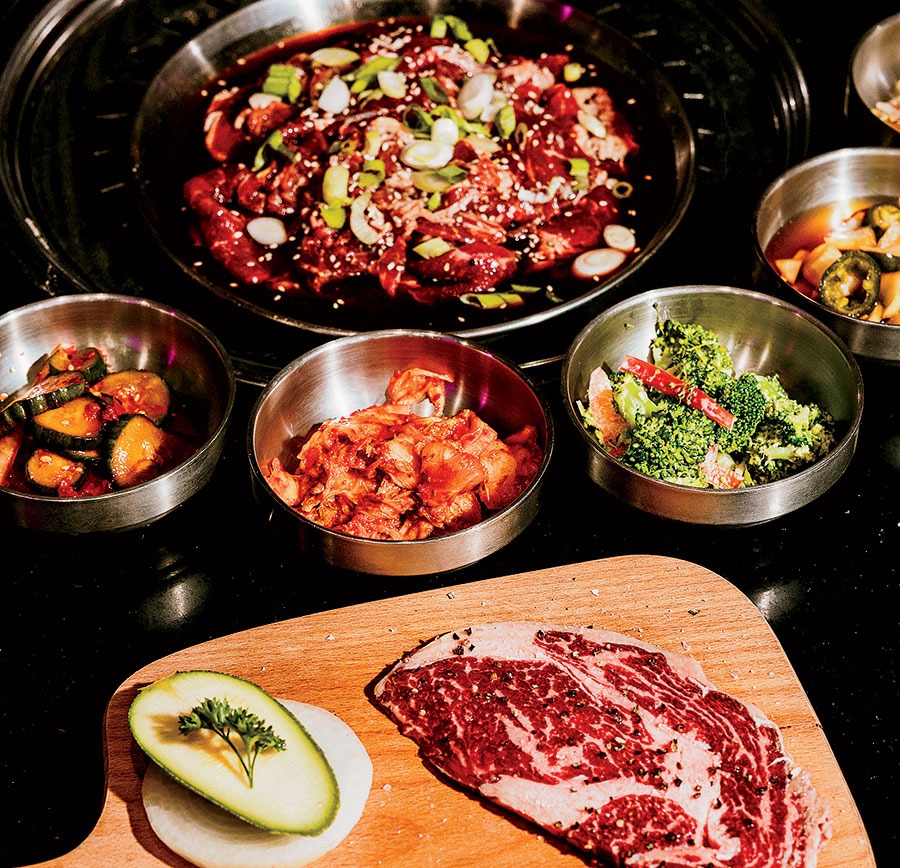When Jake Lee opened SoJu BBQ on the Near West Side in 2018, he had one halal dish among the offerings: salted brisket. “I thought it would be cool to showcase that we used a specific farm, so I listed it on the menu,” he says. A Muslim couple spotted it and started bringing their friends, he explains, “so we started adding more things.” Today, Lee offers eight halal dishes, from fire chicken to bibimbap.
Muslim interest in Korean cuisine is growing, thanks to hallyu, the international wave of fascination with South Korean culture. More and more Korean restaurants in cities with large Muslim populations, like London and Berlin, have begun offering halal options — that is, dishes prepared under Islamic guidelines and free of prohibited food like pork. With a Muslim population of about 500,000 in Chicago, there’s an audience for it here, too.
Richard Roh, who opened Gangnam Korean BBQ in Schaumburg last year, estimates that Muslims make up a quarter of his diners. They come for halal brisket and bulgogi. “People can watch K-dramas and listen to K-pop, but trying the food makes you a little bit closer to the culture,” Roh says. To reach a younger Muslim audience, Zia Ghani, who owns four locations of the Korean fried chicken chain Bonchon in the area, converted the one in Skokie to be fully halal. “Why not give them the opportunity to try it?” says Ghani, who is Muslim himself. “It worked.”



